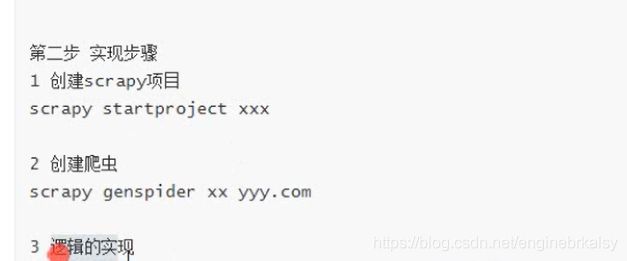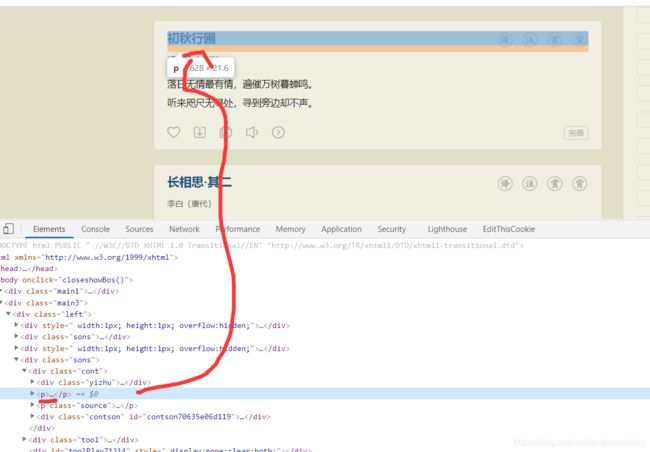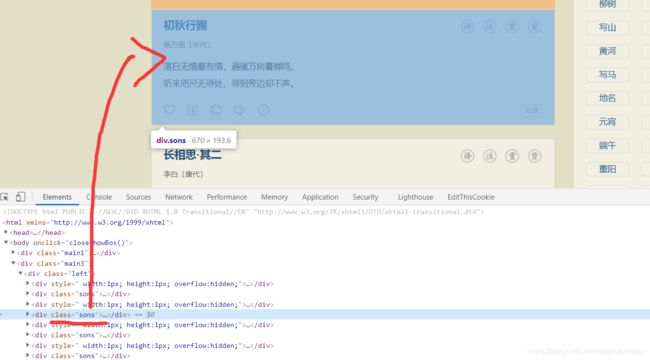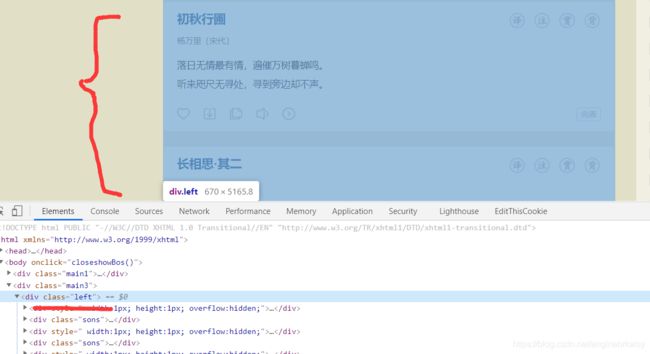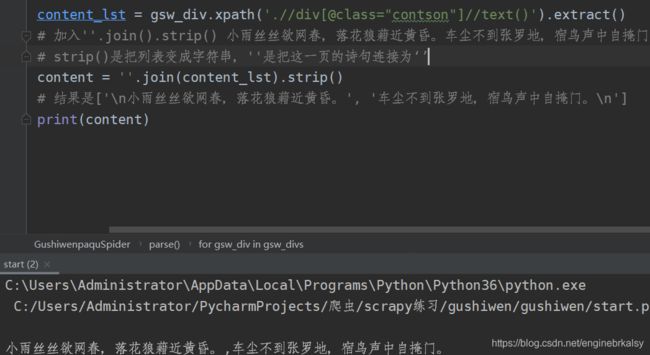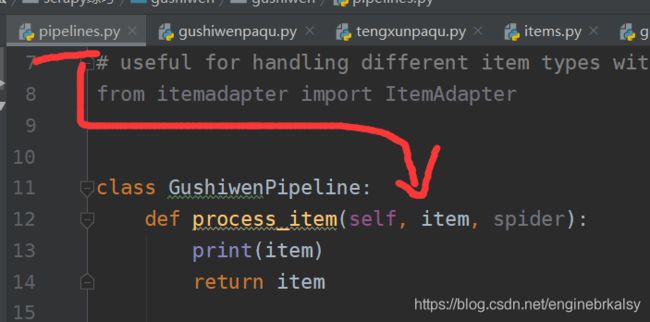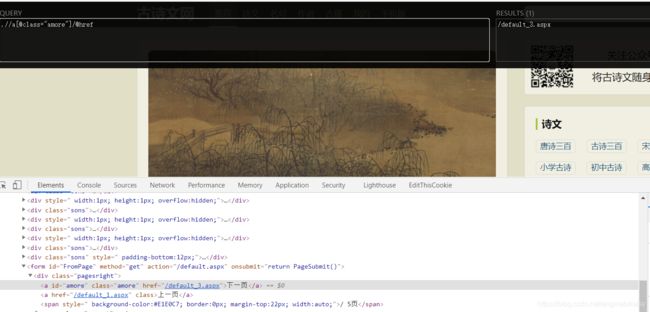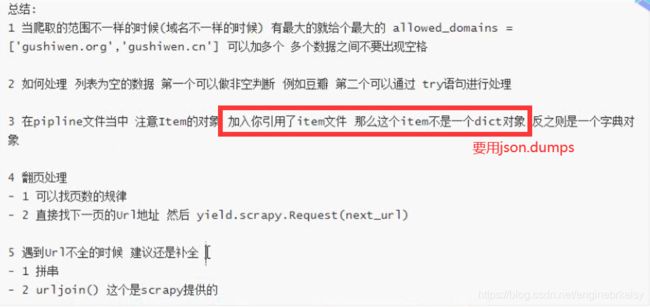- 主流编程语言全景图:从Python到Rust的深度解析
万能小贤哥
pythonrust开发语言
2024年编程语言生态报告显示,全球开发者使用的语言数量已达260+,但真正主导行业的不到20种。本文带你穿透技术迷雾,掌握8大核心语言的本质差异。一、选择编程语言的黄金标准图表代码二、八大主流语言对比解析1.Python-通用胶水语言特性:动态类型+缩进语法丰富的库生态(20万+包)GIL全局锁限制并发适用场景:python#机器学习示例(TensorFlow)importtensorflowa
- 使用Python实现的Excel像素画
简介:本项目主要使用python语言,将图片转为Excel,图片中的每一个像素转化为Excel中的每一个单元格。主要使用pillow和xlsxwriter这两个模块。项目使用一个python文件即可。一:项目功能和流程介绍项目的主要功能:就是将一张人脸图像,画在Excel表格上,图片的每一个像素点对应Excel的一个格子,俗称像素画。流程:创建Excel表,并设置行高和列宽打开图片遍历图片每一个像
- python高并发web框架_Python3中tornado高并发框架
weixin_39788969
python高并发web框架
1.单线程tornado.web:基础web框架模块tornado.ioloop:核心IO循环模块,高效的基础。封装了:1.asyncio协程,异步处理2.epoll模型:水平触发(状态改变就询问,select(),poll()),边缘触发(一直询问,epoll())3.poll模型:I/O多路复用技术4.BSD(UNIX操作系统中的一个分支的总称)的kqueue(kueue是在UNIX上比较高效
- 基于python的文字识别系统_基于Python的图片文本识别系统的研究
weixin_39683368
基于python的文字识别系统
龙源期刊网http://www.qikan.com.cn基于Python的图片文本识别系统的研究作者:韩琳来源:《科学与财富》2019年第20期近年来随着计算机技术的不断发展,OpticalCharacterRecognition(光学字符识别,简称“OCR”)应用的领域更加的广泛,而图片文字识别就是其中重要的一个。目前图片文字识别的准确率并没有达到100%,这也成为了图片文字识别发展领域的一大瓶
- 基于python的图像识别_基于PYTHON的图片文字识别
文本资料的图像文件进行分析识别处理,获取文字及版面信息的过程。一般包括以下几个过程:图像输入、图像前处理、预识别:1图像输入:对于不同的图像格式,有着不同的存储格式,不同的压缩方式,目前有OpenCV、CxImage等开源项目。2预处理:主要包括二值化,噪声去除,倾斜较正等。2.1二值化:对摄像头拍摄的图片,大多数是彩色图像,彩色图像所含信息量巨大,对于图片的内容,我们可以简单的分为前景与背景,为
- 【云原生】Helm来管理Kubernetes集群的详细使用方法与综合应用实战
景天科技苑
云原生K8S零基础到进阶实战云原生kubernetes容器Helmk8sk8s集群
✨✨欢迎大家来到景天科技苑✨✨养成好习惯,先赞后看哦~作者简介:景天科技苑《头衔》:大厂架构师,华为云开发者社区专家博主,阿里云开发者社区专家博主,CSDN全栈领域优质创作者,掘金优秀博主,51CTO博客专家等。《博客》:Python全栈,前后端开发,小程序开发,人工智能,js逆向,App逆向,网络系统安全,数据分析,Django,fastapi,flask等框架,云原生k8s,linux,she
- 面试经验分享 | 成都某安全厂商渗透测试工程师
更多大厂面试题看我的主页或者专栏找我免费领取目录:所面试的公司:某安全厂商所在城市:成都面试职位:渗透测试工程师岗位面试过程:面试官的问题:1.平常在学校打CTF嘛,获奖情况讲下,以及你自己的贡献如何?2.内网渗透主要思路说一下吧?3.web打点过程中有没有遇到过waf?怎么绕过的4.现在给你一个站你会怎么做信息搜集?5.如何快速检测定位网站目录下的webshell呢?6.简单讲下反弹shell的
- Python类中魔术方法(Magic Methods)完全指南:从入门到精通
盛夏绽放
python开发语言
文章目录Python类中魔术方法(MagicMethods)完全指南:从入门到精通一、魔术方法基础1.什么是魔术方法?2.魔术方法的特点二、常用魔术方法分类详解1.对象创建与初始化2.对象表示与字符串转换3.比较运算符重载4.算术运算符重载5.容器类型模拟6.上下文管理器7.可调用对象三、高级魔术方法1.属性访问控制2.描述符协议3.数值类型转换四、魔术方法最佳实践五、综合案例:自定义分数类Pyt
- Python面向对象编程(OOP)详解:通俗易懂的全面指南
盛夏绽放
python开发语言有问必答
前些天发现了一个巨牛的人工智能学习网站,通俗易懂,风趣幽默,忍不住分享一下给大家。点击跳转到网站。文章目录Python面向对象编程(OOP)详解:通俗易懂的全面指南一、OOP基本概念1.什么是面向对象编程?2.OOP的四大支柱3.核心概念对比表二、类和对象1.类(Class)vs对象(Object)2.类结构详解三、OOP三大特性详解1.封装(Encapsulation)2.继承(Inherita
- 〖Python 数据库开发实战 - Redis篇②〗- Linux系统下安装 Redis 数据库
哈哥撩编程
#⑤-数据库开发实战篇Python全栈白宝书python数据库数据库开发实战linux安装redis
订阅Python全栈白宝书-零基础入门篇可报销!白嫖入口-请点击我。推荐他人订阅,可获取扣除平台费用后的35%收益,文末名片加V!说明:该文属于Python全栈白宝书专栏,免费阶段订阅数量4300+,购买任意白宝书体系化专栏可加入TFS-CLUB私域社区。福利:加入社区的小伙伴们,除了可以获取博主所有付费专栏的阅读权限之外,还有机会加入星荐官共赢计划,详情请戳我。作者:不渴望力量的哈士奇(哈哥),
- python分布式爬虫打造搜索引擎--------scrapy实现
weixin_30515513
爬虫python开发工具
http://www.cnblogs.com/jinxiao-pu/p/6706319.html最近在网上学习一门关于scrapy爬虫的课程,觉得还不错,以下是目录还在更新中,我觉得有必要好好的做下笔记,研究研究。第1章课程介绍1-1python分布式爬虫打造搜索引擎简介07:23第2章windows下搭建开发环境2-1pycharm的安装和简单使用10:272-2mysql和navicat的安装
- 上传文件csv并解析list_基于PyQt5表格控件TableWidget的csv文件内容显示
(70后红太阳2020年4月写于成都)一、配置环境开发环境:Win7;开发工具:Python3.8.2IDLE,QtDesigner5.13.2;Python安装目录:D:python;文件保存目录:D:python基于PyQt5表格控件TableWidget的csv文件内容显示;路径配置:在cmd下,运行path=%path%;Dpythonpython38-32scripts;D:python
- 告别内存焦虑!用Dask打开Python大数据并行计算的“任意门“
小张在编程
python大数据开发语言
引言当你在Jupyter里用Pandas读取20GB的CSV文件,看到内存占用率从10%飙升到90%,最后弹出"MemoryError"时;当你想对亿级数据做分组聚合,却发现单线程计算要等上半小时——这些场景是不是像极了用小推车搬运万吨货物?Python生态中,Dask库就像一台"并行计算推土机",能把大数据拆分成小块并行处理,让你的普通电脑也能拥有分布式计算的能力。本文将从原理到实战,带你掌握这
- Django项目运行报错:ModuleNotFoundError: No module named ‘MySQLdb‘
解决方法:在__init__.py文件下,新增下面这段代码importpymysqlpymysql.install_as_MySQLdb()注意:确保你的python有下载pymysql库,没有的话可以使用pipinstallpymysql安装原理:用pymysql来代替mysqlLab__init__.py文件大致位置在:
- [Py026]Snakefile灵活传递param
安哥生个信
snakemake是用python编写的,最近串流程用的比较频繁,所以也归纳在python实用技巧里面。现在需要实现的一个功能是——根据每一个input自身的特点,返回一个值(可能是固定,也可能是随机);然后将这个返回值传递给下面的运行代码。举例:现在有两个fastq文件20192.fastq.gz20193.fastq.gz,需要通过seqkit转换为fasta文件;如果文件名是奇数,则转换出来
- Python日志终极指南:深入探索logging日志管理模块
c01dkit
pythonpython开发语言
在任何一个严谨的软件开发项目中,日志(Logging)都是不可或缺的一环。它不仅是调试代码的利器,更是线上问题追踪、性能分析和数据监控的重要依据。相比于随处可见的print()语句,Python内置的logging模块提供了更为强大、灵活且标准化的解决方案。[1][2]这篇博客将带你由浅入深,全面掌握logging模块的使用,从基础配置到高级技巧,再到企业级项目的最佳实践。一、告别print():
- python大数据论文_大数据环境下基于python的网络爬虫技术
weixin_39775976
python大数据论文
软件开发大数据环境下基于python的网络爬虫技术作者/谢克武,重庆工商大学派斯学院软件工程学院摘要:随着互联网的发展壮大,网络数据呈爆炸式增长,传统捜索引擎已经不能满足人们对所需求数据的获取的需求,作为搜索引擎的抓取数据的重要组成部分,网络爬虫的作用十分重要,本文首先介绍了在大数据环境下网络爬虫的重要性,接着介绍了网络爬虫的概念,工作原理,工作流程,网页爬行策略,python在编写爬虫领域的优势
- 【Python爬虫(26)】Python爬虫进阶:数据清洗与预处理的魔法秘籍
奔跑吧邓邓子
Python爬虫python爬虫开发语言数据清洗预处理
【Python爬虫】专栏简介:本专栏是Python爬虫领域的集大成之作,共100章节。从Python基础语法、爬虫入门知识讲起,深入探讨反爬虫、多线程、分布式等进阶技术。以大量实例为支撑,覆盖网页、图片、音频等各类数据爬取,还涉及数据处理与分析。无论是新手小白还是进阶开发者,都能从中汲取知识,助力掌握爬虫核心技能,开拓技术视野。目录一、数据清洗的重要性二、数据清洗的常见任务2.1去除噪声数据2.2
- 117、Python机器学习:数据预处理与特征工程技巧
多多的编程笔记
python机器学习开发语言
Python开发之机器学习准备:数据预处理与特征工程机器学习是当前人工智能领域的热门方向之一。而作为机器学习的核心组成部分,数据预处理与特征工程对于模型的性能有着至关重要的影响。本文将带领大家了解数据预处理与特征工程的基本概念,以及它们在实际应用场景中的重要性。数据预处理数据预处理是机器学习中的第一步,它的主要目的是将原始数据转换成适合进行机器学习模型训练的形式。就像我们在做饭之前需要清洗和准备食
- 如何通过linux黑窗口实现对远程服务器的操作
①选择合适的云平台进行设备的租用并复制好远程设备的IP地址②使用管理员权限打开黑窗口③输入命令连接远程的设备:ssh用户名@服务器IP地址,此时得到的是一个什么都没有的设备④由于该设备什么都没有,故先:sudoaptupdate,然后安装gcc编译器:sudoaptinstallbulid-essential,再然后安装python:sudoaptinstallpython-3.8,再然后安装mi
- Redis——API的理解和使用
莫问以
一、全局命令1、查看所有键keys*下面插入了3对字符串类型的键值对:127.0.0.1:6379>sethelloworldOK127.0.0.1:6379>setjavajedisOK127.0.0.1:6379>setpythonredis-pyOKkeys*命令会将所有的键输出:127.0.0.1:6379>keys*1)"python"2)"java"3)"hello"2、键总数dbsi
- PYTHON对接第三方验证码短信接口
短信接口开发
PYTHON短信接口对接demo#接口类型:互亿无线触发短信接口,支持发送验证码短信、订单通知短信等。#账户注册:请通过该地址开通账户http://user.ihuyi.com/?DKimmu#注意事项:#(1)调试期间,请使用用系统默认的短信内容:您的验证码是:【变量】。请不要把验证码泄露给其他人。#(2)请使用APIID及APIKEY来调用接口,可在会员中心获取;#(3)该代码仅供接入互亿无线
- 第二十四篇 Requests+BeautifulSoup,秒抓网站信息!你的智能信息收集器!
爱分享的飘哥
日常效率自动化beautifulsoupPython爬虫Requests数据抓取办公自动化信息收集
python爬虫序言:手动复制粘贴网页数据?效率太低了1.网页数据抓取基础:HTTP请求与网页结构速览1.1HTTP请求:浏览器如何和网页交互?1.2网页结构:HTML,信息的载体2.Requests库:发送网络请求的利器2.1安装与基础用法:你的第一个HTTP请求2.2处理请求头与参数:模拟浏览器访问3.BeautifulSoup:解析网页的利器3.1安装与基础用法:快速解析HTML内容3.2精
- Redis 安全加固:从密码保护到高级安全配置
Seal^_^
数据库专栏#数据库--Redisredis安全数据库Redis安全加固
Redis安全加固:从密码保护到高级安全配置一、Redis安全概述二、密码认证配置1.设置Redis密码临时设置(重启后失效)永久设置(修改配置文件)2.密码认证流程3.Python连接示例三、网络层安全加固1.绑定内网IP2.修改默认端口3.防火墙配置四、危险命令禁用1.禁用敏感命令2.命令禁用前后对比五、高级安全配置1.TLS加密传输2.客户端证书认证3.ACL细粒度权限控制(Redis6.0
- 【python库对比】路径专题 os.path和pathlib对比
尚未想好
python高频库对比python开发语言vscode
专栏收录:python高频库对比本专栏将持续更新在工程领域高频使用的python库之间的对比文章概览:简单介绍路径处理常用的python库及特点对比os.path和pathlib的异同结合代码示例说明两个库的差异.补充:os.path和pathlib高频使用接口见os.path和pathlib高频使用接口及示例1.简介Python中处理路径的库有很多,其中一些常用的包括:os.path模块:os.
- 如何解决pip安装报错ModuleNotFoundError: No module named ‘flask’问题
万粉变现经纪人
全栈Bug解决方案专栏pipflaskpythonpycharmscrapypandas后端
【Python系列Bug修复PyCharm控制台pipinstall报错】如何解决pip安装报错ModuleNotFoundError:Nomodulenamed‘flask’问题摘要在使用PyCharm进行Python开发时,常常需要通过pip安装第三方包以满足项目依赖。但在控制台执行pipinstallflask后,依旧可能出现ModuleNotFoundError:Nomodulenamed
- 如何解决pip安装报错ModuleNotFoundError: No module named ‘sqlalchemy’问题
万粉变现经纪人
全栈Bug解决方案专栏pippandaspythonpycharmscipybeautifulsoupnumpy
【Python系列Bug修复PyCharm控制台pipinstall报错】如何解决pip安装报错ModuleNotFoundError:Nomodulenamed‘sqlalchemy’问题摘要在使用PyCharm控制台执行pipinstallsqlalchemy后,仍然在代码中提示ModuleNotFoundError:Nomodulenamed'sqlalchemy',让许多开发者头疼。本文将
- selenium后续!!
paid槮
selenium测试工具
小项目案例:实现批量下载网页中的资源根据15.3.2小节中的返回网页内容可知,用户只有获取了网页中的图片url才可以将图片下载到*在使用selenium库渲染网页后,可直接通过正则表达式过滤出指定的网页图片,从而实现批量下载接下来以此为思路来实现一个小项目案例。项目任务实现批量下载人民邮电出版社官网中与Python相关的图书封面图片。项目实步骤步骤1,获取人民邮电出版社官网中与Python相关的图
- Python爬虫博客:使用Selenium模拟登录并抓取需要身份验证的网站内容
Python爬虫项目
2025年爬虫实战项目python爬虫selenium信息可视化开发语言百度测试工具
引言在爬虫开发的过程中,我们常常遇到需要身份验证才能访问的网站。例如,很多社交媒体、新闻网站、电商平台等都要求用户登录才能访问一些特定内容。如何模拟登录并抓取这些需要身份验证的网页内容成为了一个非常重要且常见的需求。Selenium,作为一个强大的浏览器自动化工具,不仅可以模拟用户的浏览行为,还能够模拟用户输入用户名和密码、点击登录按钮等操作,突破了普通爬虫工具(如requests)无法处理的Ja
- 如何解决pip安装报错ModuleNotFoundError: No module named ‘django’问题
万粉变现经纪人
全栈Bug解决方案专栏pipdjangopythonnumpypycharm后端pandas
【Python系列Bug修复PyCharm控制台pipinstall报错】如何解决pip安装报错ModuleNotFoundError:Nomodulenamed‘django’问题摘要在日常Django项目开发中,最常见的“拦路虎”之一就是ModuleNotFoundError:Nomodulenamed'django'。该异常通常在以下场景出现:在PyCharm2025中新建项目后,直接在Py
- Hadoop(一)
朱辉辉33
hadooplinux
今天在诺基亚第一天开始培训大数据,因为之前没接触过Linux,所以这次一起学了,任务量还是蛮大的。
首先下载安装了Xshell软件,然后公司给了账号密码连接上了河南郑州那边的服务器,接下来开始按照给的资料学习,全英文的,头也不讲解,说锻炼我们的学习能力,然后就开始跌跌撞撞的自学。这里写部分已经运行成功的代码吧.
在hdfs下,运行hadoop fs -mkdir /u
- maven An error occurred while filtering resources
blackproof
maven报错
转:http://stackoverflow.com/questions/18145774/eclipse-an-error-occurred-while-filtering-resources
maven报错:
maven An error occurred while filtering resources
Maven -> Update Proje
- jdk常用故障排查命令
daysinsun
jvm
linux下常见定位命令:
1、jps 输出Java进程
-q 只输出进程ID的名称,省略主类的名称;
-m 输出进程启动时传递给main函数的参数;
&nb
- java 位移运算与乘法运算
周凡杨
java位移运算乘法
对于 JAVA 编程中,适当的采用位移运算,会减少代码的运行时间,提高项目的运行效率。这个可以从一道面试题说起:
问题:
用最有效率的方法算出2 乘以8 等於几?”
答案:2 << 3
由此就引发了我的思考,为什么位移运算会比乘法运算更快呢?其实简单的想想,计算机的内存是用由 0 和 1 组成的二
- java中的枚举(enmu)
g21121
java
从jdk1.5开始,java增加了enum(枚举)这个类型,但是大家在平时运用中还是比较少用到枚举的,而且很多人和我一样对枚举一知半解,下面就跟大家一起学习下enmu枚举。先看一个最简单的枚举类型,一个返回类型的枚举:
public enum ResultType {
/**
* 成功
*/
SUCCESS,
/**
* 失败
*/
FAIL,
- MQ初级学习
510888780
activemq
1.下载ActiveMQ
去官方网站下载:http://activemq.apache.org/
2.运行ActiveMQ
解压缩apache-activemq-5.9.0-bin.zip到C盘,然后双击apache-activemq-5.9.0-\bin\activemq-admin.bat运行ActiveMQ程序。
启动ActiveMQ以后,登陆:http://localhos
- Spring_Transactional_Propagation
布衣凌宇
springtransactional
//事务传播属性
@Transactional(propagation=Propagation.REQUIRED)//如果有事务,那么加入事务,没有的话新创建一个
@Transactional(propagation=Propagation.NOT_SUPPORTED)//这个方法不开启事务
@Transactional(propagation=Propagation.REQUIREDS_N
- 我的spring学习笔记12-idref与ref的区别
aijuans
spring
idref用来将容器内其他bean的id传给<constructor-arg>/<property>元素,同时提供错误验证功能。例如:
<bean id ="theTargetBean" class="..." />
<bean id ="theClientBean" class=&quo
- Jqplot之折线图
antlove
jsjqueryWebtimeseriesjqplot
timeseriesChart.html
<script type="text/javascript" src="jslib/jquery.min.js"></script>
<script type="text/javascript" src="jslib/excanvas.min.js&
- JDBC中事务处理应用
百合不是茶
javaJDBC编程事务控制语句
解释事务的概念; 事务控制是sql语句中的核心之一;事务控制的作用就是保证数据的正常执行与异常之后可以恢复
事务常用命令:
Commit提交
- [转]ConcurrentHashMap Collections.synchronizedMap和Hashtable讨论
bijian1013
java多线程线程安全HashMap
在Java类库中出现的第一个关联的集合类是Hashtable,它是JDK1.0的一部分。 Hashtable提供了一种易于使用的、线程安全的、关联的map功能,这当然也是方便的。然而,线程安全性是凭代价换来的――Hashtable的所有方法都是同步的。此时,无竞争的同步会导致可观的性能代价。Hashtable的后继者HashMap是作为JDK1.2中的集合框架的一部分出现的,它通过提供一个不同步的
- ng-if与ng-show、ng-hide指令的区别和注意事项
bijian1013
JavaScriptAngularJS
angularJS中的ng-show、ng-hide、ng-if指令都可以用来控制dom元素的显示或隐藏。ng-show和ng-hide根据所给表达式的值来显示或隐藏HTML元素。当赋值给ng-show指令的值为false时元素会被隐藏,值为true时元素会显示。ng-hide功能类似,使用方式相反。元素的显示或
- 【持久化框架MyBatis3七】MyBatis3定义typeHandler
bit1129
TypeHandler
什么是typeHandler?
typeHandler用于将某个类型的数据映射到表的某一列上,以完成MyBatis列跟某个属性的映射
内置typeHandler
MyBatis内置了很多typeHandler,这写typeHandler通过org.apache.ibatis.type.TypeHandlerRegistry进行注册,比如对于日期型数据的typeHandler,
- 上传下载文件rz,sz命令
bitcarter
linux命令rz
刚开始使用rz上传和sz下载命令:
因为我们是通过secureCRT终端工具进行使用的所以会有上传下载这样的需求:
我遇到的问题:
sz下载A文件10M左右,没有问题
但是将这个文件A再传到另一天服务器上时就出现传不上去,甚至出现乱码,死掉现象,具体问题
解决方法:
上传命令改为;rz -ybe
下载命令改为:sz -be filename
如果还是有问题:
那就是文
- 通过ngx-lua来统计nginx上的虚拟主机性能数据
ronin47
ngx-lua 统计 解禁ip
介绍
以前我们为nginx做统计,都是通过对日志的分析来完成.比较麻烦,现在基于ngx_lua插件,开发了实时统计站点状态的脚本,解放生产力.项目主页: https://github.com/skyeydemon/ngx-lua-stats 功能
支持分不同虚拟主机统计, 同一个虚拟主机下可以分不同的location统计.
可以统计与query-times request-time
- java-68-把数组排成最小的数。一个正整数数组,将它们连接起来排成一个数,输出能排出的所有数字中最小的。例如输入数组{32, 321},则输出32132
bylijinnan
java
import java.util.Arrays;
import java.util.Comparator;
public class MinNumFromIntArray {
/**
* Q68输入一个正整数数组,将它们连接起来排成一个数,输出能排出的所有数字中最小的一个。
* 例如输入数组{32, 321},则输出这两个能排成的最小数字32132。请给出解决问题
- Oracle基本操作
ccii
Oracle SQL总结Oracle SQL语法Oracle基本操作Oracle SQL
一、表操作
1. 常用数据类型
NUMBER(p,s):可变长度的数字。p表示整数加小数的最大位数,s为最大小数位数。支持最大精度为38位
NVARCHAR2(size):变长字符串,最大长度为4000字节(以字符数为单位)
VARCHAR2(size):变长字符串,最大长度为4000字节(以字节数为单位)
CHAR(size):定长字符串,最大长度为2000字节,最小为1字节,默认
- [强人工智能]实现强人工智能的路线图
comsci
人工智能
1:创建一个用于记录拓扑网络连接的矩阵数据表
2:自动构造或者人工复制一个包含10万个连接(1000*1000)的流程图
3:将这个流程图导入到矩阵数据表中
4:在矩阵的每个有意义的节点中嵌入一段简单的
- 给Tomcat,Apache配置gzip压缩(HTTP压缩)功能
cwqcwqmax9
apache
背景:
HTTP 压缩可以大大提高浏览网站的速度,它的原理是,在客户端请求网页后,从服务器端将网页文件压缩,再下载到客户端,由客户端的浏览器负责解压缩并浏览。相对于普通的浏览过程HTML ,CSS,Javascript , Text ,它可以节省40%左右的流量。更为重要的是,它可以对动态生成的,包括CGI、PHP , JSP , ASP , Servlet,SHTML等输出的网页也能进行压缩,
- SpringMVC and Struts2
dashuaifu
struts2springMVC
SpringMVC VS Struts2
1:
spring3开发效率高于struts
2:
spring3 mvc可以认为已经100%零配置
3:
struts2是类级别的拦截, 一个类对应一个request上下文,
springmvc是方法级别的拦截,一个方法对应一个request上下文,而方法同时又跟一个url对应
所以说从架构本身上 spring3 mvc就容易实现r
- windows常用命令行命令
dcj3sjt126com
windowscmdcommand
在windows系统中,点击开始-运行,可以直接输入命令行,快速打开一些原本需要多次点击图标才能打开的界面,如常用的输入cmd打开dos命令行,输入taskmgr打开任务管理器。此处列出了网上搜集到的一些常用命令。winver 检查windows版本 wmimgmt.msc 打开windows管理体系结构(wmi) wupdmgr windows更新程序 wscrip
- 再看知名应用背后的第三方开源项目
dcj3sjt126com
ios
知名应用程序的设计和技术一直都是开发者需要学习的,同样这些应用所使用的开源框架也是不可忽视的一部分。此前《
iOS第三方开源库的吐槽和备忘》中作者ibireme列举了国内多款知名应用所使用的开源框架,并对其中一些框架进行了分析,同样国外开发者
@iOSCowboy也在博客中给我们列出了国外多款知名应用使用的开源框架。另外txx's blog中详细介绍了
Facebook Paper使用的第三
- Objective-c单例模式的正确写法
jsntghf
单例iosiPhone
一般情况下,可能我们写的单例模式是这样的:
#import <Foundation/Foundation.h>
@interface Downloader : NSObject
+ (instancetype)sharedDownloader;
@end
#import "Downloader.h"
@implementation
- jquery easyui datagrid 加载成功,选中某一行
hae
jqueryeasyuidatagrid数据加载
1.首先你需要设置datagrid的onLoadSuccess
$(
'#dg'
).datagrid({onLoadSuccess :
function
(data){
$(
'#dg'
).datagrid(
'selectRow'
,3);
}});
2.onL
- jQuery用户数字打分评价效果
ini
JavaScripthtmljqueryWebcss
效果体验:http://hovertree.com/texiao/jquery/5.htmHTML文件代码:
<!DOCTYPE html>
<html xmlns="http://www.w3.org/1999/xhtml">
<head>
<title>jQuery用户数字打分评分代码 - HoverTree</
- mybatis的paramType
kerryg
DAOsql
MyBatis传多个参数:
1、采用#{0},#{1}获得参数:
Dao层函数方法:
public User selectUser(String name,String area);
对应的Mapper.xml
<select id="selectUser" result
- centos 7安装mysql5.5
MrLee23
centos
首先centos7 已经不支持mysql,因为收费了你懂得,所以内部集成了mariadb,而安装mysql的话会和mariadb的文件冲突,所以需要先卸载掉mariadb,以下为卸载mariadb,安装mysql的步骤。
#列出所有被安装的rpm package rpm -qa | grep mariadb
#卸载
rpm -e mariadb-libs-5.
- 利用thrift来实现消息群发
qifeifei
thrift
Thrift项目一般用来做内部项目接偶用的,还有能跨不同语言的功能,非常方便,一般前端系统和后台server线上都是3个节点,然后前端通过获取client来访问后台server,那么如果是多太server,就是有一个负载均衡的方法,然后最后访问其中一个节点。那么换个思路,能不能发送给所有节点的server呢,如果能就
- 实现一个sizeof获取Java对象大小
teasp
javaHotSpot内存对象大小sizeof
由于Java的设计者不想让程序员管理和了解内存的使用,我们想要知道一个对象在内存中的大小变得比较困难了。本文提供了可以获取对象的大小的方法,但是由于各个虚拟机在内存使用上可能存在不同,因此该方法不能在各虚拟机上都适用,而是仅在hotspot 32位虚拟机上,或者其它内存管理方式与hotspot 32位虚拟机相同的虚拟机上 适用。
- SVN错误及处理
xiangqian0505
SVN提交文件时服务器强行关闭
在SVN服务控制台打开资源库“SVN无法读取current” ---摘自网络 写道 SVN无法读取current修复方法 Can't read file : End of file found
文件:repository/db/txn_current、repository/db/current
其中current记录当前最新版本号,txn_current记录版本库中版本

